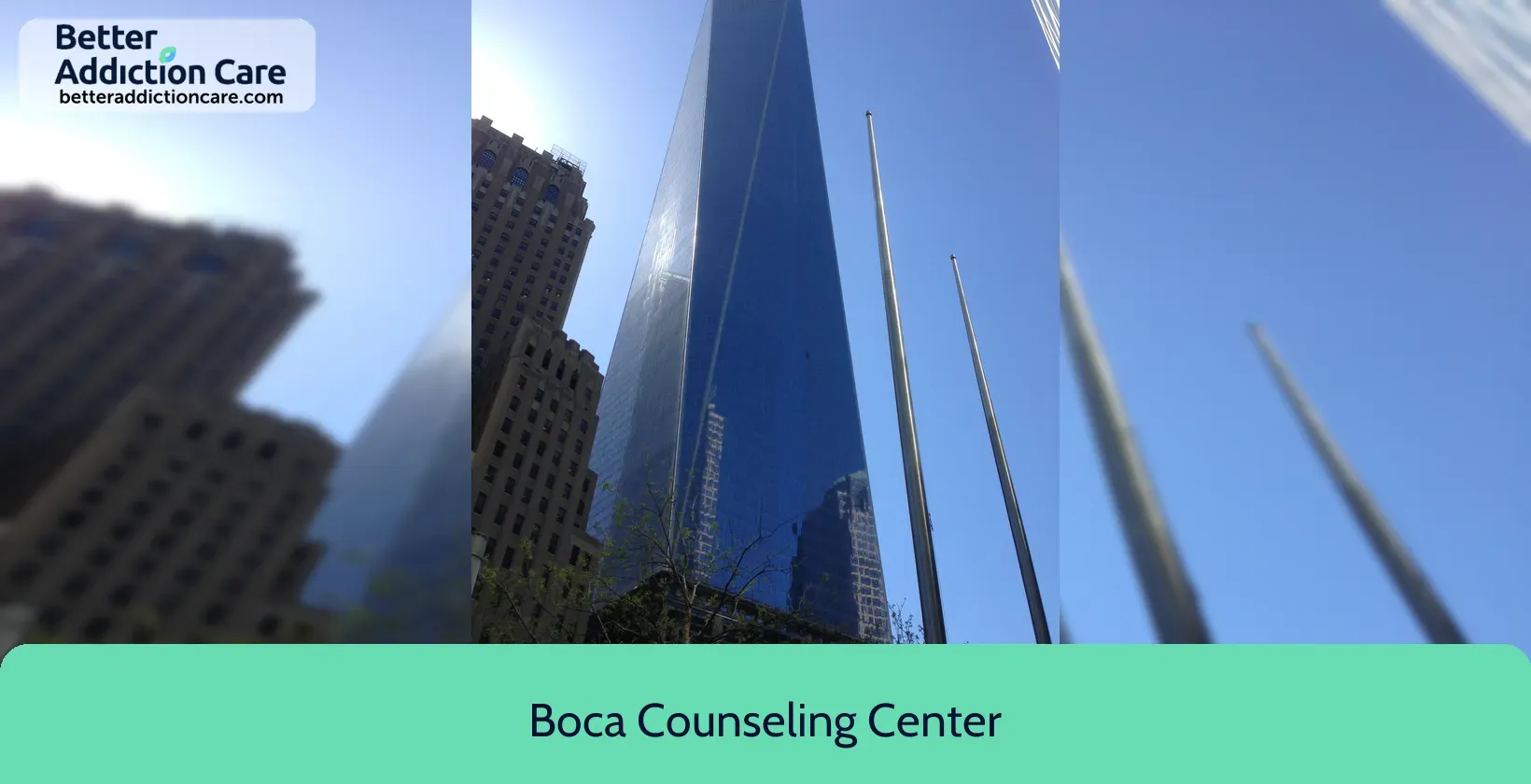Boca Counseling Center
Overview
Boca Counseling Center is a substance abuse treatment center for people seeking treatment near Palm Beach County. As part of their treatment modalities for recovery, Boca Counseling Center provides cognitive behavioral therapy, telemedicine/telehealth therapy, and substance use disorder counseling during treatment. Boca Counseling Center is located in Delray Beach, Florida, accepting cash or self-payment for treatment.
Boca Counseling Center at a Glance
Payment Options
- Cash or self-payment
- Medicare
- Private health insurance
- Sliding fee scale (fee is based on income and other factors)
Assessments
- Screening for tobacco use
- Comprehensive substance use assessment
- Outreach to persons in the community
- Screening for mental disorders
- Screening for substance use
Age Groups
- Seniors or older adults
- Adolescents
- Young adults
- Children/adolescents
Ancillary Services
- Case management service
- Suicide prevention services
- Specially designed program for DUI/DWI clients
- Domestic violence services, including family or partner
- Mental health services
Highlights About Boca Counseling Center
6.92/10
With an overall rating of 6.92/10, this facility has following balanced range of services. Alcohol Rehabilitation: 8.00/10, Drug Rehab and Detox: 6.00/10, Insurance and Payments: 6.00/10, Treatment Options: 7.70/10.-
Alcohol Rehabilitation 8.00
-
Treatment Options 7.70
-
Drug Rehab and Detox 6.00
-
Insurance and Payments 6.00
Treatment At Boca Counseling Center
Treatment Conditions
- Alcoholism
- Mental health treatment
- Substance use treatment
- Co-occurring Disorders
Care Levels
- Outpatient
- Intensive outpatient treatment
- Regular outpatient treatment
- Aftercare
Treatment Modalities
- Cognitive behavioral therapy
- Telemedicine/telehealth therapy
- Substance use disorder counseling
- Trauma-related counseling
- Smoking/vaping/tobacco cessation counseling
Ancillary Services
Additional Services
- Pharmacotherapies administered during treatment
- Housing services
- Breathalyzer or blood alcohol testing
Special Programs
- Clients with co-occurring mental and substance use disorders
- Veterans
- Active duty military
- Members of military families
- Criminal justice (other than DUI/DWI)/Forensic clients
Contact Information
Read our Most Recent Article About Drug Addiction
DISCLAIMER: The facility name, logo and brand are the property and registered trademarks of Boca Counseling Center, and are being used for identification and informational purposes only. Use of these names, logos and brands shall not imply endorsement. BetterAddictionCare.com is not affiliated with or sponsored by Boca Counseling Center.









